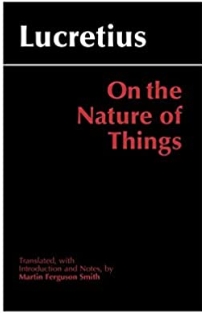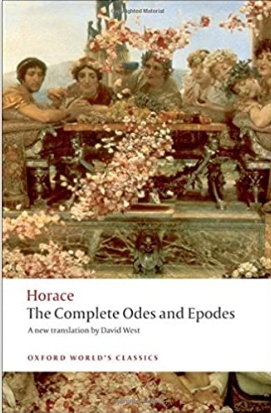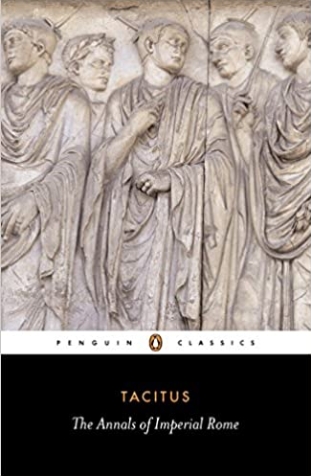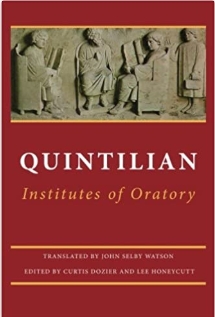The Torrey Honors curriculum includes a number of the greatest Roman works such as Cicero’s On Duties, Virgil’s Aeneid, Ovid’s Metamorphoses, Plutarch’s Lives, Marcus Aurelius’s Meditations, and Augustine’s Confessions and City of God. For those who would like to expand their knowledge even further, here are ten additional Roman works, renowned through the centuries with a lasting historical impact.

1) Lucretius, On the Nature of Things. One of the earliest and most influential articulations of Epicurean materialism. In this scientific and philosophical poem to a Roman audience, Lucretius argues that the world came into being by chance and natural forces rather than by divine purpose, and that death is the end of existence.
2) Cicero, On Moral Ends. An engaging dialogue on moral philosophy between Stoic, Epicurean, and Academic philosophers, who discuss what Cicero believes to be the central disagreement between their competing schools of thought—the nature of humankind’s summum bonum. In particular, Cicero’s adept refutation of Epicureanism serves as a helpful response to the hedonism so prevalent in our modern culture.

3) Horace, Odes. Horace’s lyric poetry expresses his thoughts and feelings on a wide range of topics such as love, nature, wine, tranquility and death. The author of well-known phrases like carpe diem, Horace crafted his verses with a beauty and simplicity that inspired later generations of poets.
4) Livy, History of Rome. Written by one of Rome’s leading historians, this is an immense history of Rome beginning with its mythical founding by Aeneas and ending in Livy’s own time during the reign of Augustus. Only about a quarter of Livy’s history is extant, but even so, what remains fills several books—to finish them all would be a worthy endeavor!

5) Tacitus, The Annals. Tacitus is arguably the greatest Roman historian and in this final work, he attempted to impartially record the events of 14-68 AD, which includes a reference to Christ and a description of the early Christians. He uses a concise style to analyze the reigns and characters of the emperors from Tiberius to Nero and to explore the themes of freedom, servitude, and power.
6) Seneca, Six Tragedies. Although primarily known as a Stoic philosopher and the tutor of Nero, Seneca also wrote tragedies that reflected the turmoil of his time and exerted a profound influence on Shakespeare and Elizabethan drama. Seneca’s tragedies tend to be darker than Greek plays and are characterized by bloodthirsty deeds and intense and unrestrained emotions.
7) Lucan, The Civil War. As a former friend of Nero who joined a thwarted conspiracy to assassinate him and was then condemned to commit suicide, Lucan understood the upheavals of Roman politics. His epic poem on the battle of Pharsalus, when Julius Caesar triumphed over Pompey the Great, is significant in its use of recent history as the subject of epic, exclusion of the Roman divinities, and overall tone of horror and pessimism.

8) Quintilian, The Institutes of Oratory. A quintessential textbook of rhetoric containing twelve books of detailed educational advice on topics ranging from individualized teaching methods to the means of persuasion and the five canons of rhetoric. Quintilian incorporates much of the material contained in Aristotle and Cicero’s books on rhetoric, and he bases his teaching on the belief that a good orator must be morally upright.
9) Epictetus, The Discourses. Technically, this is a work of Greek philosophy on various topics related to life, but it was written during the time of the Roman Empire by a student of Epictetus, a Stoic philosopher who taught for many years in both Rome and Greece. Epictetus was born a slave, physically disabled as a child, and suffered exile, but he was a talented individual who overcame these trials, gained his freedom, and taught his students that they possessed the inward power of choice even when circumstances were beyond their control.

10) Juvenal, The Sixteen Satires. Juvenal’s clever poetry critiques Roman social and political life, particularly in its degradation of Roman morals. Although his remarks are sometimes problematic and offensive, Juvenal reveals how in casting aside traditional virtues such as honesty, valor, simplicity, and compassion, the Romans had lost their national identity, becoming a people who were motivated only by “bread and circuses.”